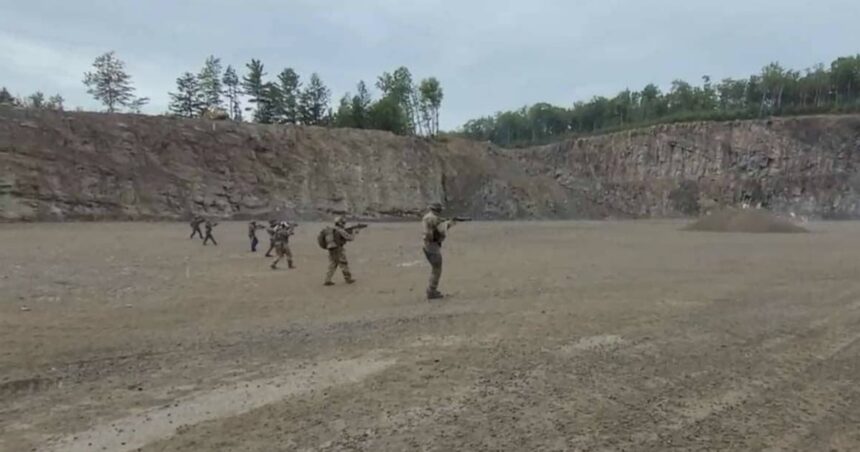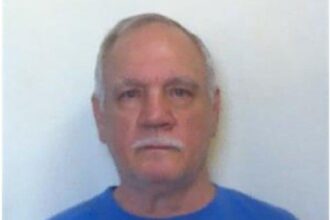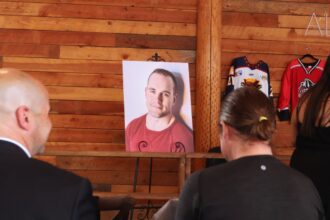In a significant development that has sent ripples through Quebec’s legal community, one of the four men accused in an alleged extremist plot has been granted bail, while his three co-accused remain behind bars following contentious court proceedings in Montreal this week.
François Amalega Bitondo, 43, was released Wednesday under strict conditions after Justice Pierre Labrie determined he posed a lesser threat to public safety than his alleged accomplices. The decision came after a marathon bail hearing that exposed disturbing details about what prosecutors describe as a coordinated plan to destabilize Quebec’s democratic institutions.
“The threshold for detention before trial remains exceptionally high in our legal system,” said Crown prosecutor Julien Beauchamp-Laliberté outside the courthouse. “While we respect the court’s decision regarding Mr. Bitondo, we maintain that the evidence against all four suspects points to a sophisticated operation that warranted pre-trial detention.”
The three other suspects—Raymond Têtu, 37, Steeve Charland, 49, and Normand Dubé, 62—will remain in custody as they await trial on charges including conspiracy to commit terrorist acts, weapons possession, and advocating overthrow of the government. Court documents suggest investigators uncovered manifestos, weapons caches, and detailed plans targeting government buildings during raids conducted last month.
Defense attorney Marie-Ève Desmarais, representing Bitondo, successfully argued that her client’s involvement was peripheral, focusing on his limited access to weapons and absence from key planning meetings. “The prosecution failed to demonstrate that Mr. Bitondo presented an imminent danger to the public,” Desmarais told reporters. “The evidence suggests he was largely unaware of the more extreme elements allegedly discussed by the other accused.”
The case has drawn attention from security experts across Canada, who note concerning parallels to recent extremist movements. Professor Émilie Tremblay of Université de Montréal’s Institute for Security Studies explained, “What makes this case particularly troubling is the alleged combination of ideological motivation and tactical planning. The court must balance public safety concerns with constitutional rights to fair process.”
According to documents unsealed during the bail hearing, authorities had been monitoring the group for over eight months following tips from concerned citizens who reported alarming rhetoric at community meetings. The RCMP-led investigation allegedly uncovered communications discussing “Day Zero” operations targeting hydroelectric infrastructure and government buildings.
Quebec Premier François Legault addressed the case during a press conference yesterday, calling it “a sobering reminder that extremism can take root anywhere.” He added, “While we must let justice run its course, I want to assure Quebecers that our security apparatus remains vigilant against all threats to our democratic society.”
Bitondo’s release conditions include surrendering his passport, maintaining a strict curfew, refraining from communication with his co-accused, and reporting to police twice weekly. He is also prohibited from using social media or attending public demonstrations—restrictions his lawyer characterized as “appropriately cautious but proportionate.”
Legal analysts observing the case note the prosecution faces significant challenges ahead. “The Crown must demonstrate not just planning, but actual steps toward executing a terrorist act,” noted criminal law expert Jean-Philippe Marcoux. “The distinction between protected political speech, however extreme, and actual criminal conspiracy will be central to this case.”
The remaining defendants are scheduled to appear for a preliminary hearing next month, while Bitondo’s next court date is set for September 12. Court officials anticipate a complex trial that could extend well into 2026 given the volume of evidence and constitutional questions at play.
As this case unfolds against the backdrop of growing political polarization, Canadians are left to question: how effectively can our legal system balance legitimate security concerns with the fundamental presumption of innocence that underpins our justice system?









